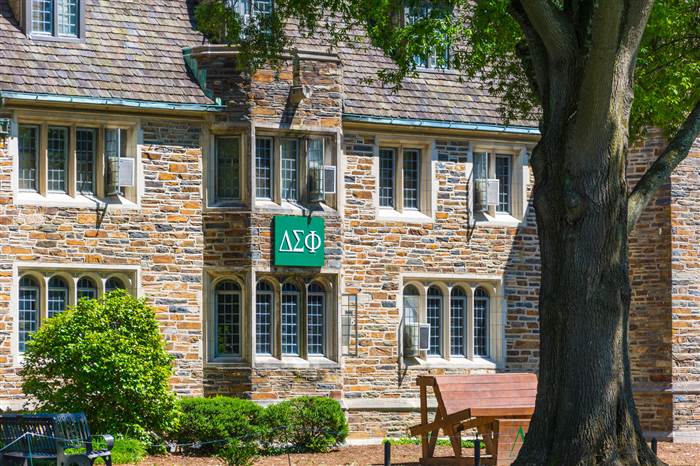
Log In


An accomplished student and athlete at George Mason University was not accepted to any sororities at the university. Her sister Lillie believes this is because she has Down syndrome. "Accepting a woman with a disability to a chapter isn't an act of charity, it brings diversity and promotes inclusion," Lillie Heigl wrote in her letter to the head of the university's Greek life.
AnnCatherine Heigl was the first student from Indiana to be accepted into George Mason University's LIFE program - a full-time program for students with intellectual disabilities. Heigl also made the school's cheerleading squad. Despite her accomplishments in and out of the classroom, Heigl did not receive any invitations to join any one of the eight university sororities after going through recruitment with 288 other women.
Her sister Lillie Heigl, a law student at Syracuse University, wrote a letter to the head of Greek life to express her concern, noting that AnnCatherine "is the first collegiate cheerleader in the nation with an intellectual disability. I firmly believe that if a typical student had gone through recruitment, as a D1 cheerleader, they would have gotten a bid; but AnnCatherine wasn't extended one because she's a woman with a disability."
The university's governing body for sororities, the Panhellenic Council, issued a statement that, while it "has been working to improve diversity and inclusion," the council is not able to "dictate our chapters' membership or the process of selecting new members." The council recognizes that "people have been harmed by the decisions of our members" and "are committed to engaging all communities in dialogue these issues to do better in the future."